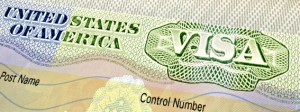
A group of technology investors is trying to make Silicon Valley friendlier to foreign entrepreneurs.
The group is lobbying lawmakers for a new visa for noncitizens who want to found technology start-ups in the U.S. Dubbed the Startup Visa, it would allow entrepreneurs sponsored by a venture capitalist to come to the U.S. for two years to start their business.
Led by Brad Feld, managing director at venture-capital firm Foundry Group in Boulder, Colo., and Paul Kedrosky, a senior fellow at the Kauffman Foundation in Kansas City, Mo., along with local entrepreneurs and angel investors such as Eric Ries, the group has discussed the idea with the staff of several legislators in recent months, including Republican Sen. Richard Lugar of Indiana. Last month, Rep. Jared Polis, a first-year Democrat from Colorado, introduced immigration legislation that included the idea, saying it could create new jobs for American workers.
“This will feed into making California more competitive by encouraging new immigrants to bring ideas to California and the U.S.,” Mr. Polis said in an interview. His bill has been incorporated into another House immigration measure.
Now the investors — who presented their case at the White House last year — are turning to Silicon Valley to build momentum. This year, the group plans to prod technology professionals in the Bay Area to lobby legislators to get the measure included in any immigration bill that may emerge.
The moves come as venture capitalists and others seek to correct what they call a problem that could cost the U.S.: the growing number of entrepreneurs who are starting companies outside the country because they can’t get a visa to bring their ideas here. Silicon Valley in particular has long relied on immigrant entrepreneurs: 52% of Silicon Valley-based start-ups founded between 1995 and 2005 had a chief executive or chief technology officer who was born outside the U.S., according to a 2007 report from researchers at Duke University.
While the U.S. already has some visa programs for tech workers, such as the H-1B visa for skilled workers with job offers from existing corporations, Mr. Feld said entrepreneurs with promising early-stage ideas are often shut out. “I think it’s insane that we educate people on student visas and don’t let them stay if they want to,” he said, adding that he has come across dozens of foreign entrepreneurs who have been unable to start companies in the U.S. in the past year.
Although the potential impact of a new visa on the Bay Area’s labor force is difficult to estimate, Mr. Feld says he hopes thousands of Startup Visas would be offered annually. While the recipients’ companies might have just a few employees each, he says that any one of them could become huge successes like Google Inc. or eBay Inc. and generate tens of thousands of jobs.
Mark O’Sullivan, 34 years old, from Saskatoon, Saskatchewan, is one entrepreneur who could have used a Startup Visa. Last year, he attended a three-month incubator program that Mr. Feld helps run in Boulder called TechStars, honing his idea for a new Web discussion software service dubbed Vanilla Forums.
Mr. O’Sullivan then pitched several Silicon Valley venture firms, such as Bay Partners, about investing in the company. But those investors passed, expressing concerns that Vanilla Forums couldn’t incorporate in the U.S. Salil Deshpande, a general partner at Bay Partners, said investing in a Canadian company would have created additional tax burdens.
So for now, Vanilla Forums has decided to set up in Canada — but still has hopes of moving to Silicon Valley. “San Francisco has huge benefits” such as access to great engineers, Mr. O’Sullivan said.
Passing any Startup Visa proposal is a tall task, particularly in a still-fragile economy where fear of foreigners taking U.S. jobs remains high. Critics contend the visa could be easily gamed and that there are already many options for smart entrepreneurs to come to the U.S.
Timothy Lee, an adjunct scholar at the Cato Institute, a libertarian Washington think tank, said the plan puts too much power in the hands of immigration officials, who would effectively be deciding which ideas were the most promising. “The things that would get approved wouldn’t necessarily be the things that are most important,” he said, adding he supported the idea of increasing the slots available to talented foreigners. “I would rather it be based on more objective criteria like a degree.”
Mr. Feld said the Startup Visa focuses on adapting an existing visa category, the EB-5, which requires individuals to invest at least $500,000 in a U.S. company and create at least 10 jobs for U.S. citizens or foreigners allowed to work in the U.S. Mr. Feld wants to expand it to include entrepreneurs sponsored by qualified investors, noting that only a few thousand of the approximately 10,000 EB-5 slots allotted annually are filled.
The idea for a Startup Visa was discussed by Silicon Valley angel investors Mr. Ries and Dave McClure at a meeting with representatives for the Commerce and State departments at the White House late last year, Mr. Ries says. This year, the group plans to step up its use of social media tools like Twitter to spread the word and assemble a list of founders stymied by visa ordeals to show legislators how the visa could help create jobs.
Source: WSJ.com






